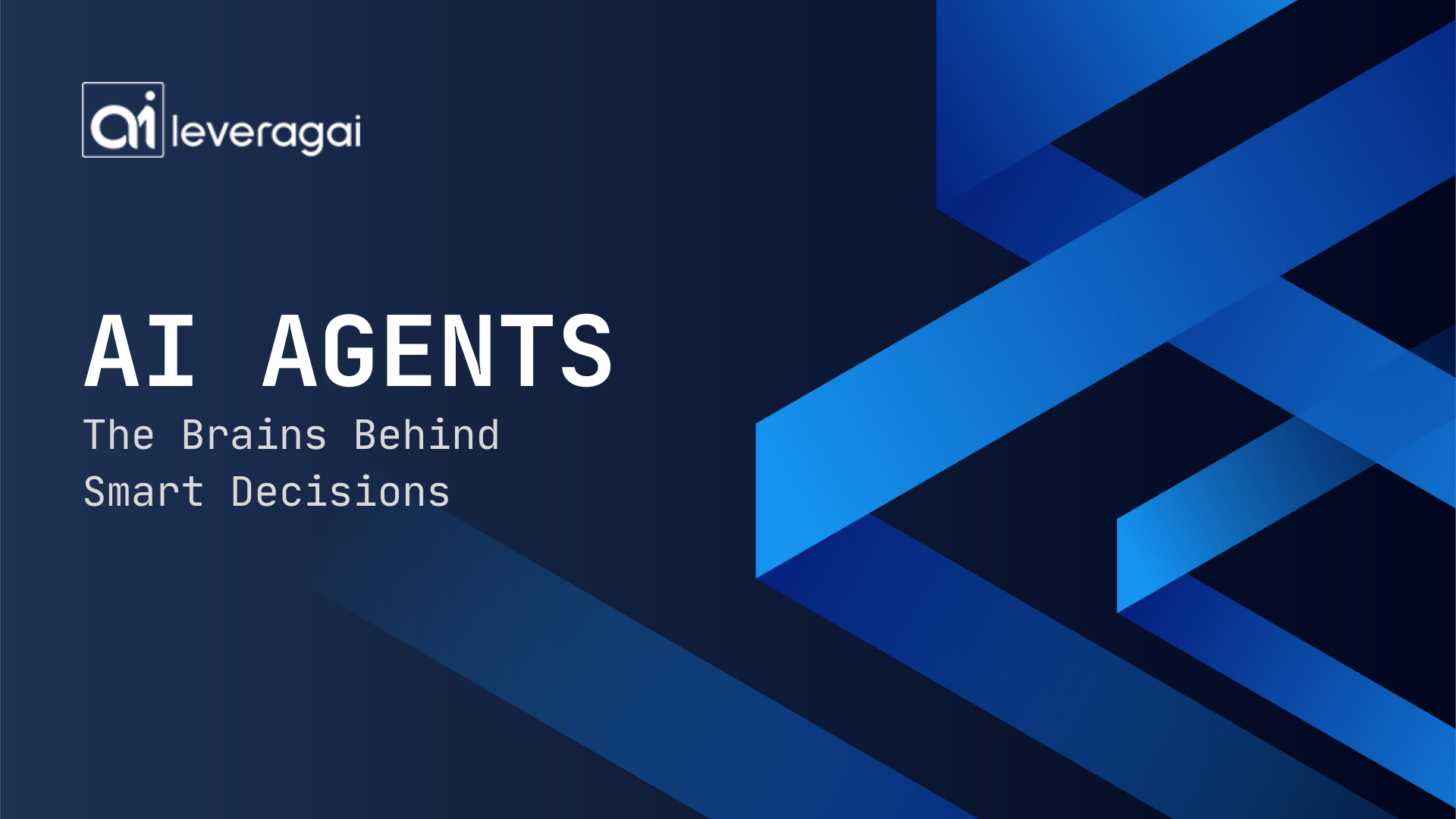AI Agents: The Brains Behind Smart Decisions
Artificial Intelligence (AI) offers solutions for various needs, driving significant transformations in business and technology. At the core of this transformation are AI agents that sense their environment, make decisions, and perform actions. AI agents are categorized into three main types based on their operation and capabilities: Reactive Agents, Proactive Agents, and Intelligent Agents. In this blog, we will explain these types and provide examples from platforms like Leveragai, OpenAI, and DeepMind.
1. Reactive Agents
Reactive agents respond immediately to current situations. They cannot store or analyze past data, making them ideal for simple and fast decision-making tasks.
Features:
- Respond instantly to current data.
- Lack memory or learning capacity.
- Effective in dynamic but simple tasks.
Examples:
- Finance: High-frequency trading algorithms that react quickly to market fluctuations.
- Gaming: DeepMind's AlphaGo, which analyzes the current board state and reacts accordingly.
- Leveragai: Develops systems using reactive agents for fast buy/sell decisions in financial markets.
2. Proactive Agents
Proactive agents plan for the future and develop strategies to achieve goals. They analyze both current conditions and potential future scenarios to act accordingly.
Features:
- Work with long-term planning and goal orientation.
- Analyze future scenarios and outcomes.
- Suitable for solving complex tasks.
Examples:
- Risk Management: Proactive agents analyze financial market trends to minimize investor losses.
- OpenAI: Tools like ChatGPT analyze user inputs and provide proactive recommendations.
- Autonomous Vehicles: Tesla’s self-driving system makes proactive decisions to predict and avoid collisions.
- Leveragai: Offers proactive agents for investment strategies and market trend analysis.
3. Intelligent Agents
Intelligent agents are the most advanced AI agents. These systems use machine learning and deep learning techniques to continuously learn and improve their decision-making mechanisms.
Features:
- Analyze past, present, and predictive data.
- Learn from experiences to improve performance.
- Operate effectively in complex and dynamic environments.
Examples:
- Algorithmic Trading: AI systems analyze news, market data, and investor behavior to develop automated trading strategies.
- DeepMind: The AlphaStar agent, which excels at StarCraft II by learning and mastering complex tasks.
- Healthcare: IBM’s Watson platform analyzes patient data to recommend treatment options for doctors.
- Leveragai: Develops intelligent agent solutions for algorithmic trading and self-learning AI models to improve financial market predictions.
Conclusion
AI agent types offer solutions tailored to different needs and goals. Reactive agents are used for quick and simple decisions, while proactive agents focus on planning and strategy. With their ability to learn, intelligent agents continuously improve over time and solve complex problems. The impact of these agents can be seen in industries such as finance, healthcare and many more. Platforms like Leveragai are the perfect starting point for those who want to explore AI-driven solutions. Visit Leveragai now and stay up to date with the latest technologies.


